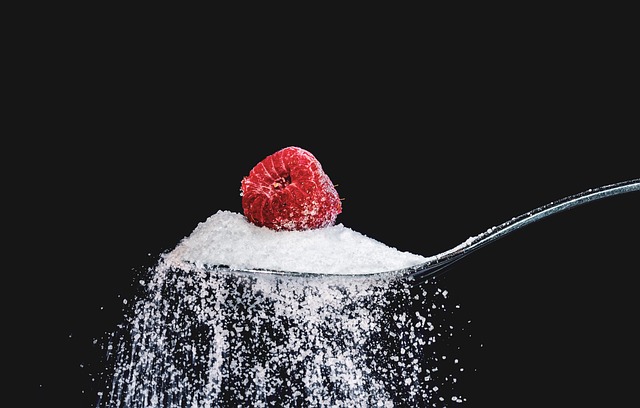In the world of plant-based nutrition, the topic of sugars can be as complex as a rich dessert menu. As a plant-based nutritionist, my mission is to demystify the language of sugars, providing clarity on the various types and unravelling the impact each has on our bodies. Let’s embark on a journey through the sweet symphony of sugars, decoding their definitions and exploring the nuanced effects they have on our health.
Glucose, Sucrose, and Fructose: Navigating the Sweet Trio
Glucose: The Body’s Power Source
Glucose stands as the body’s preferred energy source, derived from the breakdown of carbohydrates like starches and sugars. This simple sugar circulates in our bloodstream, providing fuel for our cells and powering essential bodily functions. Naturally present in foods like fruits, vegetables, and grains, glucose serves as a foundational element in the intricate dance of metabolism.
Sucrose: The Classic Table Sugar
Sucrose, often synonymous with table sugar, is a disaccharide composed of equal parts glucose and fructose. Sourced from sugar cane or sugar beets, it adds sweetness to various foods and beverages. While sucrose is naturally occurring in many plant-based foods, refined sources pose concerns when consumed excessively. Moderation is key to maintaining a balanced diet and avoiding potential health issues associated with high sugar intake.
Fructose: Nature’s Sweetness
Fructose is a natural sugar found in abundance in fruits, vegetables, and honey. Renowned for its inherent sweetness, fructose comes packaged with essential nutrients and fibre in whole, unprocessed plant foods. However, caution is necessary when dealing with isolated sources of fructose, such as high-fructose corn syrup (HFCS) in processed foods. Excessive consumption of refined fructose has been linked to health issues, emphasizing the importance of choosing whole food sources.
Differences in a Nutshell:
- Glucose is a fundamental energy source, a vital component of carbohydrates, and circulates in the bloodstream.
- Sucrose is a disaccharide, composed of equal parts glucose and fructose, commonly found in table sugar derived from sugar cane or sugar beets.
- Fructose is a natural sugar with inherent sweetness, prevalent in fruits, vegetables, and honey, often accompanied by essential nutrients and fibre.
Understanding the distinctions among glucose, sucrose, and fructose is essential for making informed dietary choices. Embracing the natural balance present in whole, plant-based foods ensures that these sugars contribute to overall health without tipping the scales towards potential negative effects associated with refined or isolated sources.
The Cast of Characters: Different Types of Sugars
1. Glucose: The Body’s Preferred Fuel
Glucose is the primary source of energy for our bodies. It is a simple sugar that comes from the breakdown of carbohydrates in our diet, including those found in grains, fruits, and vegetables. Once ingested, our bodies convert carbohydrates into glucose, which fuels our cells and powers essential bodily functions.
2. Fructose: Naturally Occurring Sweetness
Found abundantly in fruits, vegetables, and honey, fructose is a natural sugar that comes with an inherent sweetness. While fruits carry essential nutrients and fibre that help mitigate the effects of fructose, isolated sources of this sugar, such as high-fructose corn syrup (HFCS) in processed foods, can pose health risks when consumed in excess.
3. Sucrose: The Classic Table Sugar
Sucrose, commonly known as table sugar, is a disaccharide composed of equal parts glucose and fructose. It’s derived from sugar cane or sugar beets and is often added to foods and beverages to enhance sweetness. While sucrose is a natural component of many plant-based foods, excessive consumption of refined sources can contribute to health issues like obesity and insulin resistance.
4. Lactose: The Milk Sugar
Exclusive to dairy products, lactose is a disaccharide composed of glucose and galactose. It requires the enzyme lactase for proper digestion. Some individuals, particularly those with lactose intolerance, may experience digestive discomfort when consuming dairy products due to an insufficient production of lactase.
5. Maltose: The Malt Sugar
Formed by the breakdown of starches, maltose is a disaccharide composed of two glucose molecules. Found in grains such as barley, maltose is often encountered in the brewing process and contributes to the characteristic flavours of certain beverages. However, excessive consumption can lead to an imbalance in blood sugar levels.
Navigating the Sugar Terrain: Understanding the Differences
Each type of sugar plays a unique role in our diets, and the key lies in balance and moderation. Whole, unprocessed plant foods inherently contain various sugars alongside essential nutrients and fibre, which work synergistically to support overall health.
However, the story changes when we venture into the realm of processed foods. Added sugars, often disguised under various names like sucrose, HFCS (High-fructose corn syrup), or agave nectar, can contribute to weight gain, inflammation, and increased risk of chronic diseases when consumed in excess. As a plant-based nutritionist, my guidance emphasizes the importance of mindful choices and a return to whole, nutrient-dense foods.
Conclusion: Crafting a Sweet and Balanced Plant-Based Lifestyle
In the sweet symphony of sugars, the melody of a balanced and healthful plant-based lifestyle is created through awareness and informed decisions. By understanding the different types of sugars and their sources, we empower ourselves to make choices that support our well-being. Let’s savour the natural sweetness of whole plant foods, celebrating the diverse flavours nature has to offer while nurturing our bodies with the nourishment they deserve.

No responses yet